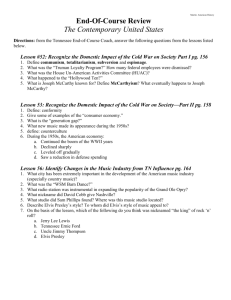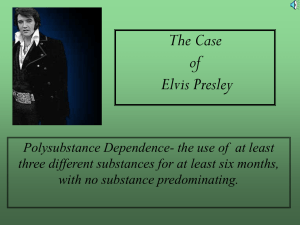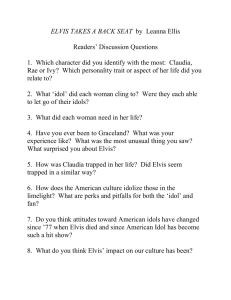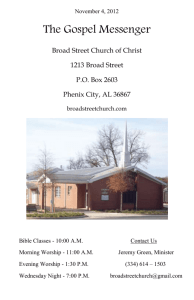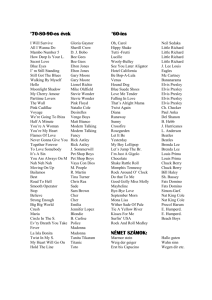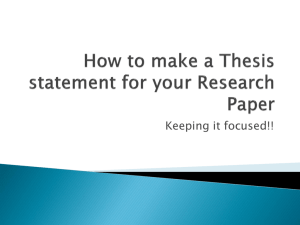Philosophy: The ELVIS Model - Conti
advertisement
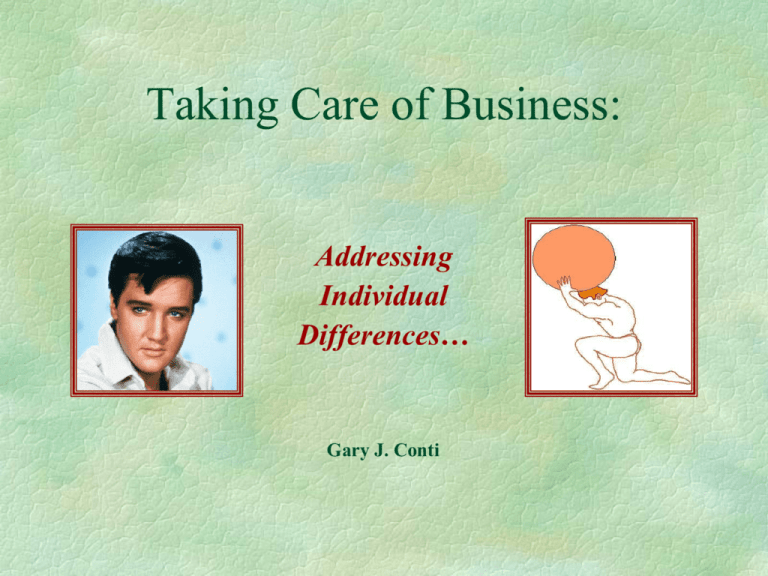
Taking Care of Business: Addressing Individual Differences… Gary J. Conti State of Education… Many questions and issues Central question: What can we do to improve learning? Will Rogers… If advertisers spent the same amount of money on improving their products as they do on advertising, Then they wouldn't have to advertise them. Learning is Natural… Learning is what makes humans superior Occurs naturally For children In adulthood Why do “schools” have trouble? Why do we have trouble “facilitating” learning? Thinking Differently… Take the blinders off Learning Principles Not just for “teachers” All partners in same enterprise Just different roles Adult Learning Theory… Twin pillars Andragogy Self-Directed Learning Learner-Centered Meaning of experiences Reflection Focus on Individual Differences Basic Principles Self-directed Learning climate Diagnosis of needs Involvement in planning Experience Prior experiences Practical application Readiness to learn Related to social roles Orientation to learn Time perspective Problem centered Motivation is internal Need to know why learning Our Special Guest… To help us understand individual differences To provide insights for us… Let’s Shake Things Up… What happens when you find something you love? Elvis Advises… What are Elvis’ thoughts on why we should pay attention to individual differences? What happens if we don’t focus on the individual? Might people look at things differently? Individual Differences… Why does Elvis think we should pay attention to individual differences? ATLAS Assessing The Learning Strategies of AdultS Places person in category User friendly Flow-chart design Let’s take ATLAS… ATLAS has… 3 groups Navigators Problem Solvers Engagers Let’s look in detail at each group… Elvis Advises… What is Elvis’ plan for the problem that he has? Does he have a clear plan? What does Elvis do if his plan does not work? Planning… What is Elvis’ plan for the problem that he has? Navigators Efficiency and Effectiveness Demand for Order and Structure Like structure and are highly organized Want schedules and deadlines Use many organizational tools Want learning objectives and expectations Want control of their learning plan Set up plan and stick with it; will clarify things three times Objective Perfectionist Logic-Oriented Results oriented Emotions not important for learning Separate the learning message from the messenger Do not waste their time Do not like group discussions or group work Hate slackers Prefer clear final results Prefer formal evaluation Seek perfection Trial-and-error means made a mistake Lack conditional acceptance Demand much of themselves Hyper-critical of errors Motto Plan the work; work the plan Elvis Advises… What does Elvis have to tell us about having alternatives? Are dreams (alternatives) okay? What should you do with your dreams? Generating Alternatives… What does Elvis have to tell us about having alternatives? Problem Solvers Generating Alternatives Constantly Seeking Alternatives Open minded to learning possibilities Difficulty making decisions Procrastination because it allows thinking to continue Prefer open-ended evaluations Ongoing modification Trial-and-error means an experiment for generating more alternatives Creative Solutions Curious; inventive; intuitive Love to explore ideas Do it their own way Do not respond well to rigidity Do not try to force them to do it your way Learning is an adventure for them Deal with Ideas Like to think things through Confident in abilities Abstract thinkers Do not interrupt; hard time starting again Often think and deal in terms of symbols Storytellers Descriptive and detailed in answers Use many examples Add delightful details to stories The process of telling the story is the important thing Competition of the story not important Motto: Ask them what time it is, and they will build you a clock Elvis Advises… What does Elvis have to tell us about the importance of relationships? What are the best ones? Should they be acknowledged? Relationships… What does Elvis have to tell us about the importance of relationships? Engagers Building Relationships with Others Feelings are the Key Learning must be Fun! Emotional; passionate; use feeling words Hard time separating themselves from their work Their work is a reflection of themselves Not engage if they will not enjoy it enough to be worth the effort Aura of Excitement Enthusiastic; excitement Fully immerse themselves in the learning once they engage Seek and find joy in the learning process Delight in new accomplishments Get bored quickly; so seek to avoid boredom Means and Not the End Learner must be actively engaged Learning has to have meaning Focus on meeting internal needs rather than external standards Want teachers to focus on the learning rather than on the evaluation Want involvement in learning based on their own individual interests Relationships Love group work Want teachers have interest in them Develop an emotional affinity with the teacher Share accomplishments with others Use human resources Motto: “It is FUN!! Symbol for Each Group.. Navigators Engagers Problem Solvers What’s the Value... Learner Metacognition Depersonalizes learning Personal insights Teacher Way to identify differences Use instrument Use characteristics Preference for initiating learning Okay to be wrong Focus on observations Compare to theory Re-adjust Elvis’ final words on why to use ATLAS… Why ATLAS Works… Based on extensive research Builds on two ideas Metacognition Instrumented Learning Metacognition… Thinking about your thinking Reflect on process you went through Think about what you did Self-consciously think about action Plan new action Thinking about how you learn Instrumented Learning Instrument provides data Discover preferences Simplify complex issues Foster self-awareness Create common language Appreciate differences Feedback for individual or team Instrument completed by: Self Others for 360̊ feedback Results presented in context of a particular model such as: Behavior style Learning preference Personality type Situational factors Popular with: Business Military Learning Strategies… Metacognition: Knowing about own learning process Planning Monitoring Adjusting Metamotivation: Awareness of what energizes your learning Attention Reward/Enjoyment: Confidence Memory: The storage and retrieval of knowledge Organization Use of External Aids Memory Application Critical Thinking: Reflective thinking process Testing Assumptions Generating Alternatives Conditional Acceptance Resource Management: Ways to use resources Identification of Resources Critical Use of Resources Use of Human Resources ATLAS Research Programmatic line of inquiry 42 dissertations Ways used To better describe the groups in ATLAS To test the instrument with groups As auxiliary tool Experimental format Findings Lack of demographic relationships Clear description of groups General distribution of groups Association with image of organization Helps learning Relationship to Learning… Munday (Wendy), Munday (Don)… Experimental studies Tested academic gain Both found significant academic gain Focus groups Metacognition Know how to deal with their own characteristics Understand others Aware of more options Implications for… 1. 2. 3. 4. 5. 6. Marketing Staff Development Programming Physical Layout Support Services Class Scheduling 7. Staffing 8. Scheduling 9. Budgeting 10. Institutional Research 11. Recognition Activities 12. Evaluation Get ATLAS… Online: w w w.conti-creations.com/start.htm Paper format Original colored booklet 1-page folding copy
